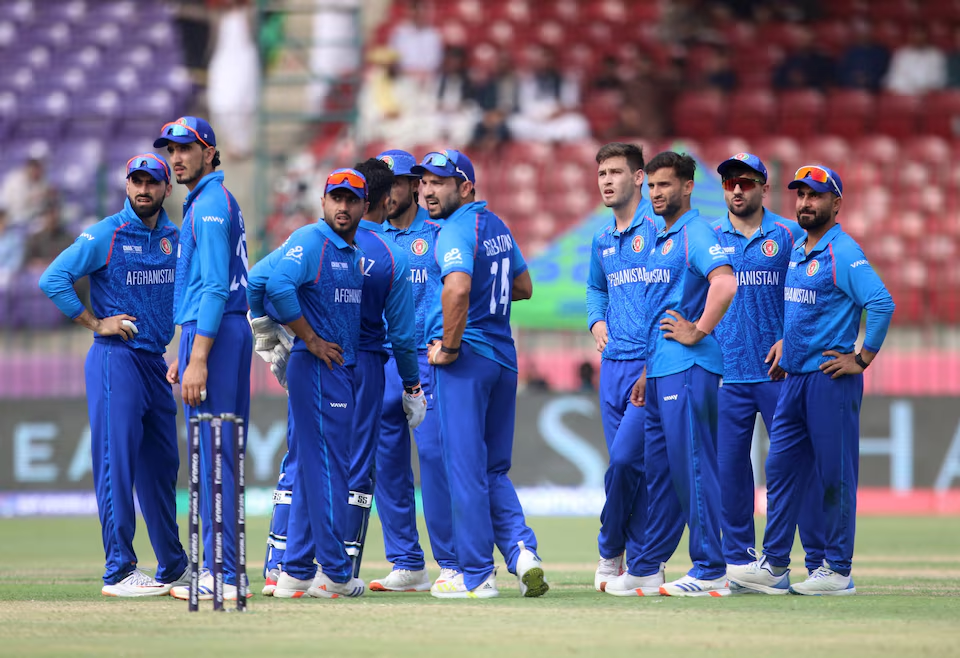
Afghanistan’s Cricketers in a Difficult Position Over Anti-Taliban Boycott Calls: A Coach’s Perspective
Afghanistan’s cricketers find themselves caught in a complex and challenging situation, as calls for a boycott of matches due to the Taliban’s crackdown on women’s rights escalate. The international community has reacted strongly to the Taliban’s policies, particularly their restrictions on women’s access to education, work, and their movement. In this tense environment, Afghanistan’s cricketers are facing increasing pressure from both sides of the debate.
Jonathan Trott, the head coach of Afghanistan’s national cricket team, addressed the issue this week, acknowledging the difficult position the players are in. His comments highlight the internal conflict that Afghan cricketers face—balancing their love for the sport with the moral challenges posed by the actions of the Taliban government. The situation is a tricky one for Afghanistan’s cricketers, who are passionate about their sport and proud of representing their country on the global stage, but are also aware of the political and social turmoil in Afghanistan. This article explores the dilemma faced by Afghanistan’s cricketers and their coach, as well as the ongoing calls for boycotts and the possible consequences for the future of Afghan cricket.
The Growing Calls for Boycotts of Afghanistan Matches
The issue of boycotting Afghanistan’s cricket matches has become increasingly contentious in recent months. The Taliban’s return to power in 2021 has led to severe restrictions on women’s rights in Afghanistan, sparking global outcry. As part of these calls for action, some UK lawmakers have suggested that England should boycott their upcoming match against Afghanistan. South Africa’s sports minister also raised concerns last week during the ongoing Champions Trophy tournament, questioning whether it was ethical to play against Afghanistan given the situation in the country.
The calls for boycotts are driven by the international community’s concerns over the Taliban’s treatment of women, including their barring from education and work, restrictions on their movement, and forced dress codes. The international sporting world, including organizations like the International Cricket Council (ICC), now finds itself in a delicate balancing act between advocating for human rights and supporting its athletes. Afghanistan’s cricket team, however, remains caught in the middle, unable to influence the political decisions in their home country while trying to focus on their performances on the field.
Coach Jonathan Trott’s View on the Situation
Jonathan Trott, the Afghanistan national cricket team’s head coach, has expressed empathy for the difficult position his players are in. In an interview with the BBC, Trott stated that the Afghanistan cricketers “know the difference between right and wrong” but are stuck in a “real tricky situation” where they are being asked to navigate political tensions while remaining focused on their performance. As someone with personal ties to both South Africa and England, Trott is acutely aware of the global debate surrounding Afghanistan’s current political climate.
Trott also spoke about the “bravery” of Afghanistan’s cricketers, who continue to represent their country despite the societal challenges they face. “These guys are brave,” he said. “They know the difference between right and wrong. It is a real tricky situation for them.” He further emphasized that the players are doing their best to bring joy to Afghanistan by excelling in their sport, despite the deeply troubling situation at home. He acknowledged that the players are aware of the discrepancies and injustices occurring in their country but also stressed the importance of focusing on their role as athletes.
Trott’s personal concern for Afghanistan’s political situation is also evident. As a father of daughters who play cricket, he added that he is concerned about the treatment of women in Afghanistan and hopes for a day when the country undergoes positive change. “I have daughters who play cricket,” Trott shared. “I am proud of where I come from and the change the country made for the betterment of everybody. Hopefully one day I can see that in Afghanistan.” His comments reflect both his personal and professional investment in the future of Afghanistan’s cricket and society.
Afghanistan Cricketers‘ Standpoint: Focus on the Game

England v Afghanistan – Arun Jaitley Stadium, New Delhi, India
Afghanistan’s captain, Hashmatullah Shahidi, echoed similar sentiments, stressing that his team’s responsibility lies in playing cricket. While the players are undoubtedly aware of the political situation in Afghanistan, they can only control what happens on the field. In a press conference following the calls for a boycott, Shahidi stated that his team is focused on their preparation and performance, not on the political challenges facing the country.
“We play hard, we work hard, we have good net sessions,” Shahidi said. “So that’s what we’re thinking of and we only can do what we can do on the ground.” His comments reflect a determination to keep personal and political matters separate from the game, focusing instead on the pride they take in representing Afghanistan on the international stage.
Shahidi also spoke about the importance of the team’s efforts, stating that they are proud of where they come from and are working toward the betterment of their country. The Afghanistan cricket team continues to bring hope and joy to its citizens, even as they face significant challenges both on and off the field.
The ICC and Afghanistan’s Participation in International Competitions
The International Cricket Council (ICC) is responsible for overseeing the global game of cricket, and the organization finds itself in the midst of the debate surrounding Afghanistan’s participation in international competitions. According to the ICC, it has no jurisdiction over Afghanistan’s political situation and cannot intervene in the decisions made by the country’s government. While the ICC has publicly condemned the Taliban’s treatment of women, it also maintains that its role is to foster cricket and ensure its global growth, irrespective of the political environments in which the sport is played.
The England Cricket Board (ECB) announced that England’s match against Afghanistan would proceed as planned, following talks between the UK government, the ICC, and the players. The ECB made it clear that the cricketing community alone cannot solve the political and humanitarian issues in Afghanistan. This statement highlights the complex nature of the situation, where sport is seen as separate from the political landscape, but the players are still affected by the actions of their government.
The ICC and its member nations face a challenging dilemma: how to maintain the integrity of international sport while respecting human rights. While the Afghanistan national team’s players are seen as apolitical figures, the global conversation about their participation in events such as the Champions Trophy only grows more contentious.
The Global Debate on Afghanistan and Women’s Rights
The global outcry over Afghanistan’s treatment of women has intensified, especially since the Taliban’s return to power in 2021. Women in Afghanistan have been subjected to increasing restrictions, including being barred from attending school, working in most professions, and traveling without a male guardian. These policies have sparked widespread condemnation from governments, human rights organizations, and individuals around the world.
However, the boycott calls related to Afghanistan’s participation in international cricket have sparked debate about the role of sports in addressing political and human rights issues. Supporters of the boycott argue that it is necessary to take a stand against the Taliban’s oppressive policies, particularly toward women. They believe that boycotting Afghanistan’s matches would send a powerful message of solidarity with Afghan women.
On the other hand, critics argue that sports should not be politicized and that the Afghanistan cricketers should not be punished for the actions of their government. Afghanistan’s players, including Hashmatullah Shahidi and his teammates, are caught in the middle of this debate. They are being asked to represent their country in international competitions while facing pressure from the global community to take a stand against their own government’s actions.
Conclusion: A Difficult Situation for Afghanistan’s Cricketers
The situation facing Afghanistan’s cricketers is undoubtedly difficult. They are caught between their passion for the sport, their pride in representing their country, and the harsh reality of the political environment in Afghanistan. As coach Jonathan Trott noted, the players are aware of the moral complexities they face but continue to perform on the world stage despite these challenges. The calls for boycotts against Afghanistan’s cricket team are unlikely to subside anytime soon, and the global conversation around the team’s participation in international cricket will continue to evolve.
Ultimately, Afghanistan’s cricketers are in a difficult position, trying to navigate the challenges of playing the sport they love while being constantly reminded of the political and human rights issues that continue to affect their country. The world watches closely as Afghanistan players strive to bring joy to their people through cricket, even as they deal with the uncertainty and complexities of their home country.

























There are no comments yet. Be the first to comment!